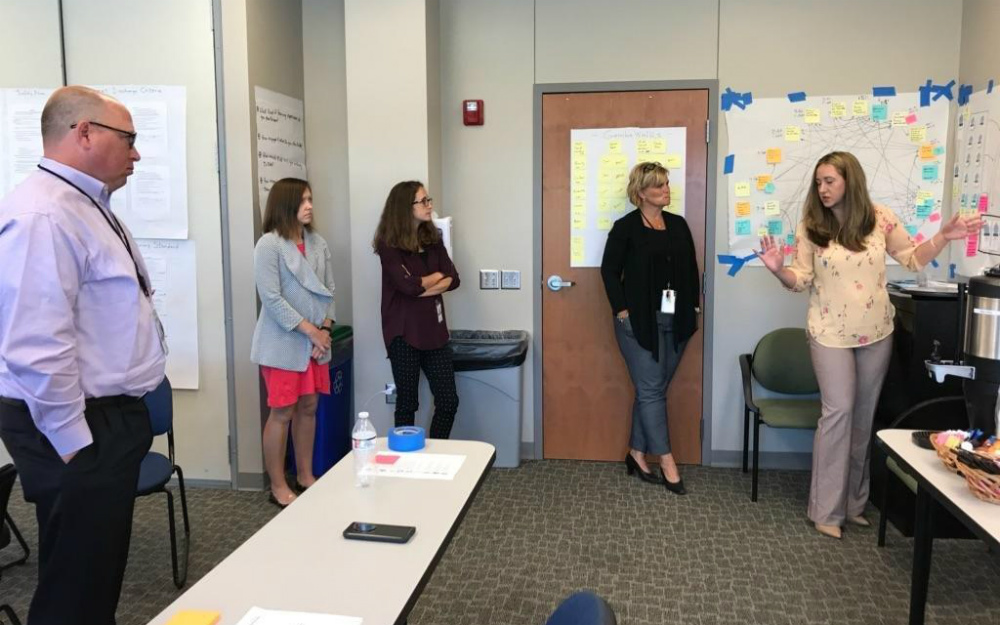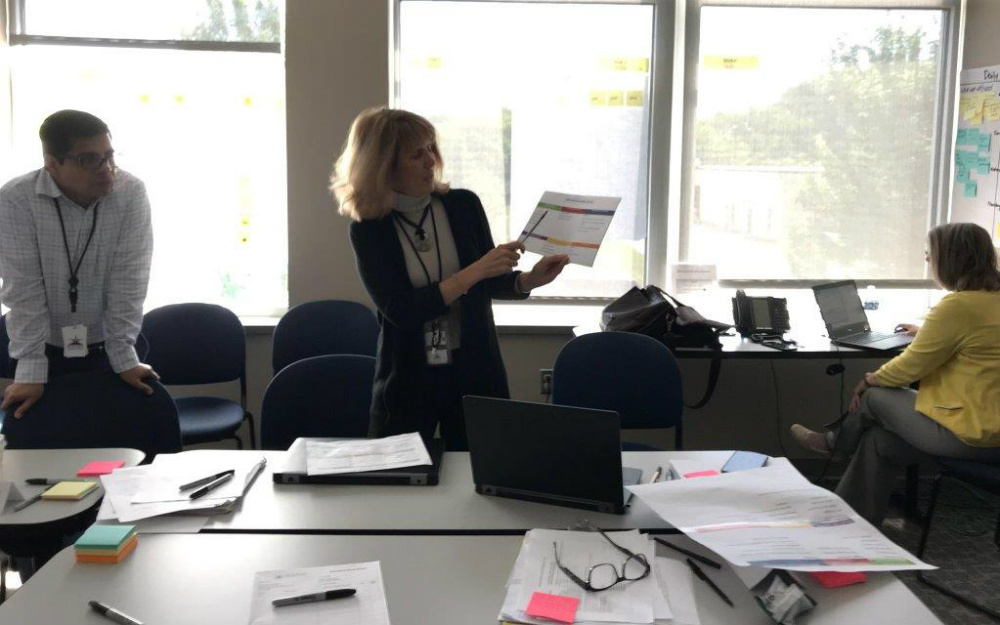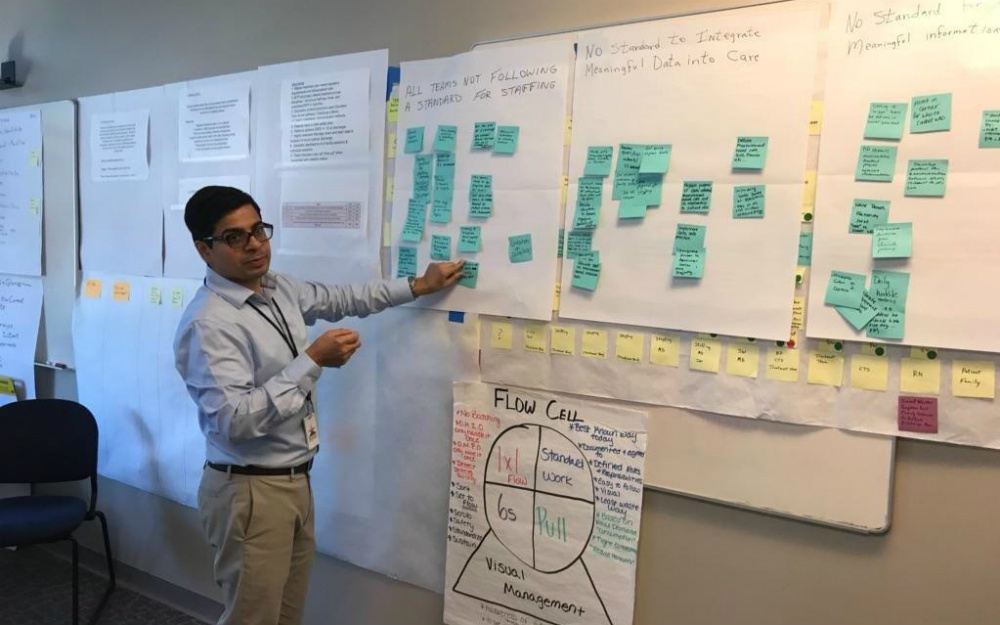
RIE for social workers improves workflow, shows importance of discussing outcomes data
10/25/18 11:26:amData coming out of a recent Rapid Improvement Event is helping to enhance the workflow of our social workers and demonstrates the effectiveness of discussing outcomes data with patients.
An important finding in the RIE was seeing whether a social worker discussing a patient’s QIDS score and Rogers’ outcomes data results in the patient staying an extra day in inpatient care. QIDS measures the overall severity of depression symptoms, and data show decreased QIDS score and improved symptoms from a longer inpatient stay.
Currently, the QIDS discussion doesn’t always take place, with the most common reason being that the assessment wasn’t completed at admission. This can occur if a patient comes in too late at night, is under the influence at admission, or if they refuse.
Another insightful fact that came out of the RIE was that patients have a greater chance of enrolling in a step-down program (inside or outside of Rogers) if a discharge plan is put in place at least 24 hours ahead of time. More than 62% of patients with qualifying insurance and a discharge plan in place entered a step-down program, compared to 41% without a discharge plan.
Bojana Verhalen, social worker at Rogers–West Allis and project lead for this RIE, says that as a result of the RIE, they’re able to put together better discharge plans and at times are able to extend length of stay for patients, allowing them to complete the right dose of treatment.
“The Rogers Improvement System is able to help us standardize work, create less confusion among staff in regards to their workflow, and be able to provide best care for our patients,” Verhalen says.








